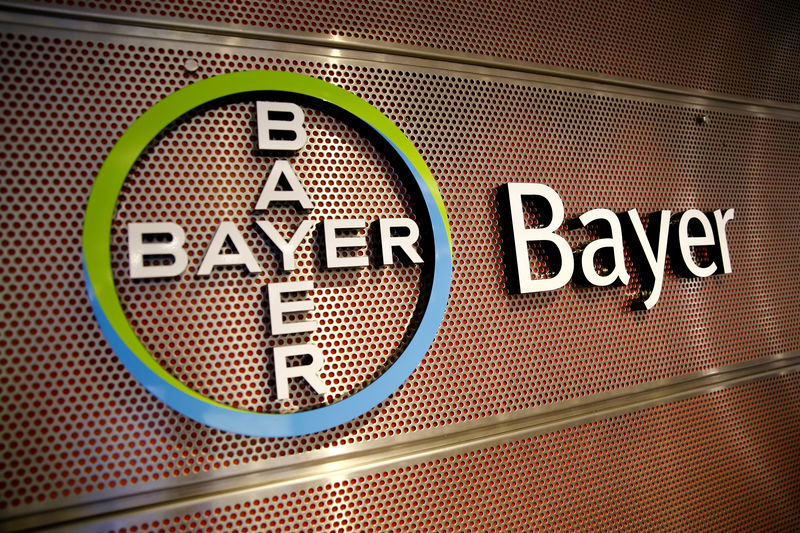FRANKFURT (Reuters) - Bayer (DE:BAYGN), the German crop science and chemicals group reeling from U.S. litigation over claims its glyphosate pesticide causes cancer, said on Friday it would invest 5 billion euros ($5.64 billion) in weedkiller research.
Launching a public relations offensive to repair an image tarnished by fallout from its takeover of glyphosate maker Monsanto (NYSE:MON), Bayer also promised to reduce its environmental impact by 30% through 2030.
"We listened. We learned," Bayer said on its website https://www.bayer.com/en/our-commitments-on-transparency-sustainability-and-engagement.aspx, affirming its "heightened responsibility and ... unique potential to advance farming for the benefit of society and the planet."
Bayer shares recently plumbed seven-year lows after a California couple was last month awarded more than $2 billion, in the largest-ever U.S. jury award over claims that Monsanto's glyphosate-based weedkiller Roundup causes cancer.
It was the third consecutive U.S. jury verdict against Roundup, which Bayer acquired as part of its $63 billion purchase of Monsanto last year. Bayer says glyphosate is safe.
The share-price slide has left Bayer with a market valuation of $56 billion - less than it paid for Monsanto - piling pressure on CEO Werner Baumann who championed the takeover and has faced a backlash from shareholders.
Baumann has beefed up Bayer's crisis PR operation and taken personal charge of efforts to repair the company's image, as it also faces a backlash at home in Germany over a collapse in insect populations that environmentalists blame on excessive use of weedkillers by farmers.
"While glyphosate will continue to play an important role in agriculture and in Bayer’s portfolio, the company is committed to offering more choices for growers," Bayer said in a statement.
The company also said it would seek to reduce its environmental footprint by scaling down crop protection volumes and enabling more precise application. It would increase transparency around research efforts and the forthcoming process of re-registering glyphosate in the European Union.
"This will help to restore and retain biodiversity, combat climate change, and make the most efficient use of natural resources," it said.

